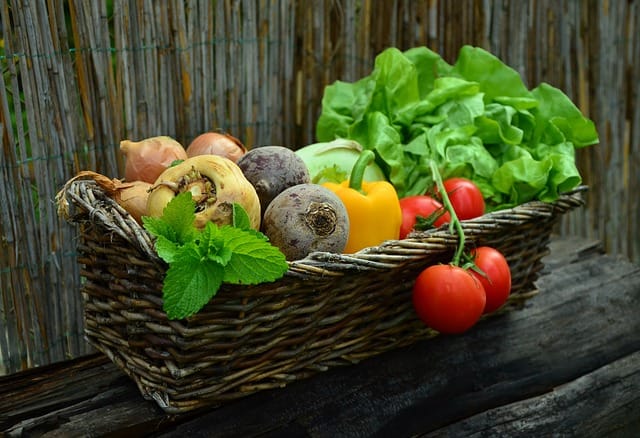Gardening philosophies: Organic gardening
Organic gardening is a philosophy of growing plants in a way that promotes ecological harmony and sustainability

In this article:
- Introduction to the Organic Gardening Philosophy
- Understanding the Fundamentals of Organic Gardening
- Creating Healthy Soil for Organic Gardening
- Choosing the Right Plants for Organic Gardening
- Natural Pest Control Methods for Organic Gardens
- Nurturing Biodiversity in Your Organic Garden
- Composting and Mulching Techniques for Organic Gardens
- Watering Strategies for Organic Gardens
- Implementing Sustainable Practices in Organic Gardening
- Harvesting and Preserving Organic Produce
- Troubleshooting Common Challenges in Organic Gardening
- Conclusion: Embracing the Organic Gardening Lifestyle
Introduction to the Organic Gardening Philosophy
Organic gardening is a philosophy of growing plants in a way that promotes ecological harmony and sustainability. It emphasizes the use of natural and organic methods, avoiding synthetic fertilizers, pesticides, and genetically modified organisms (GMOs). This article will guide you through the principles and techniques of organic gardening, helping you create a thriving and sustainable garden of your own.
Understanding the Fundamentals of Organic Gardening
Before diving into the various aspects of organic gardening, it is important to understand its core principles. Organic gardening focuses on nurturing the soil, conserving natural resources, and promoting biodiversity. By avoiding chemicals and artificial inputs, organic gardeners aim to work in harmony with nature and create a healthy ecosystem within their gardens.
Creating Healthy Soil for Organic Gardening
The key to successful organic gardening lies in the quality of the soil. This section will explore the importance of organic matter, the role of beneficial microbes, and techniques such as composting and vermiculture to improve soil fertility. It will also discuss the significance of soil testing and amendments to maintain a balanced nutrient profile for your plants.
Choosing the Right Plants for Organic Gardening
Not all plants are suitable for organic gardening. In this section, we will discuss the importance of selecting native and heirloom varieties, as well as disease-resistant plants. We will explore the concept of companion planting to maximize the benefits of intercropping and avoid monocultures. By choosing the right plants, you can reduce the need for synthetic inputs and create a resilient garden ecosystem.
Natural Pest Control Methods for Organic Gardens
In organic gardening, pest control is approached differently than in conventional gardening. This section will delve into various natural pest control methods such as companion planting, biological controls, and physical barriers. We will also touch upon the importance of attracting beneficial insects and birds to your garden to help control pest populations naturally.
Nurturing Biodiversity in Your Organic Garden
Biodiversity is the backbone of a healthy and productive garden. In this section, we will explore ways to attract and support a wide variety of plants, insects, and wildlife in your garden. By creating habitats and providing diverse food sources, you can enhance ecosystem balance and reduce the risk of pest outbreaks or plant diseases.
Composting and Mulching Techniques for Organic Gardens
Composting and mulching are essential practices in organic gardening. This section will guide you on how to create a compost pile, what materials to include, and how to optimize the decomposition process. Additionally, we will discuss the benefits of mulching, different types of mulch materials, and how to apply them effectively to conserve moisture, suppress weeds, and enrich the soil.
Watering Strategies for Organic Gardens
Efficient water management is crucial in organic gardening. In this section, we will cover various watering strategies that help conserve water while promoting plant health. We will explore techniques such as drip irrigation, rainwater harvesting, and using water-efficient systems. Understanding the water needs of different plants and employing appropriate watering methods ensures optimal growth while minimizing water wastage.
Implementing Sustainable Practices in Organic Gardening
Organic gardening goes hand in hand with sustainable practices. This section will discuss methods such as crop rotation, cover cropping, and integrated pest management (IPM) that contribute to long-term soil fertility and ecosystem health. We will also touch upon the benefits of using renewable resources, reducing waste, and adopting eco-friendly gardening tools and equipment.
Harvesting and Preserving Organic Produce
Enjoying the fruits of your labor is one of the joys of organic gardening. This section will provide tips on when and how to harvest your organic produce to ensure the best flavor and nutritional value. You will also learn various methods of preserving your harvest, such as canning, freezing, and drying, to enjoy your organic bounty throughout the year.
Troubleshooting Common Challenges in Organic Gardening
Every gardener faces challenges, and organic gardening is no exception. This section will address common issues such as nutrient deficiencies, pest outbreaks, and plant diseases. You will learn how to identify problems, implement natural remedies, and prevent future complications in order to maintain a healthy and thriving organic garden.
Conclusion: Embracing the Organic Gardening Lifestyle
In conclusion, organic gardening is not just about growing plants; it is a way of living in harmony with nature. By embracing the principles and techniques discussed in this article, you can create a beautiful, sustainable, and vibrant organic garden. Remember, every small step towards organic gardening contributes to a healthier environment and a greener future.
